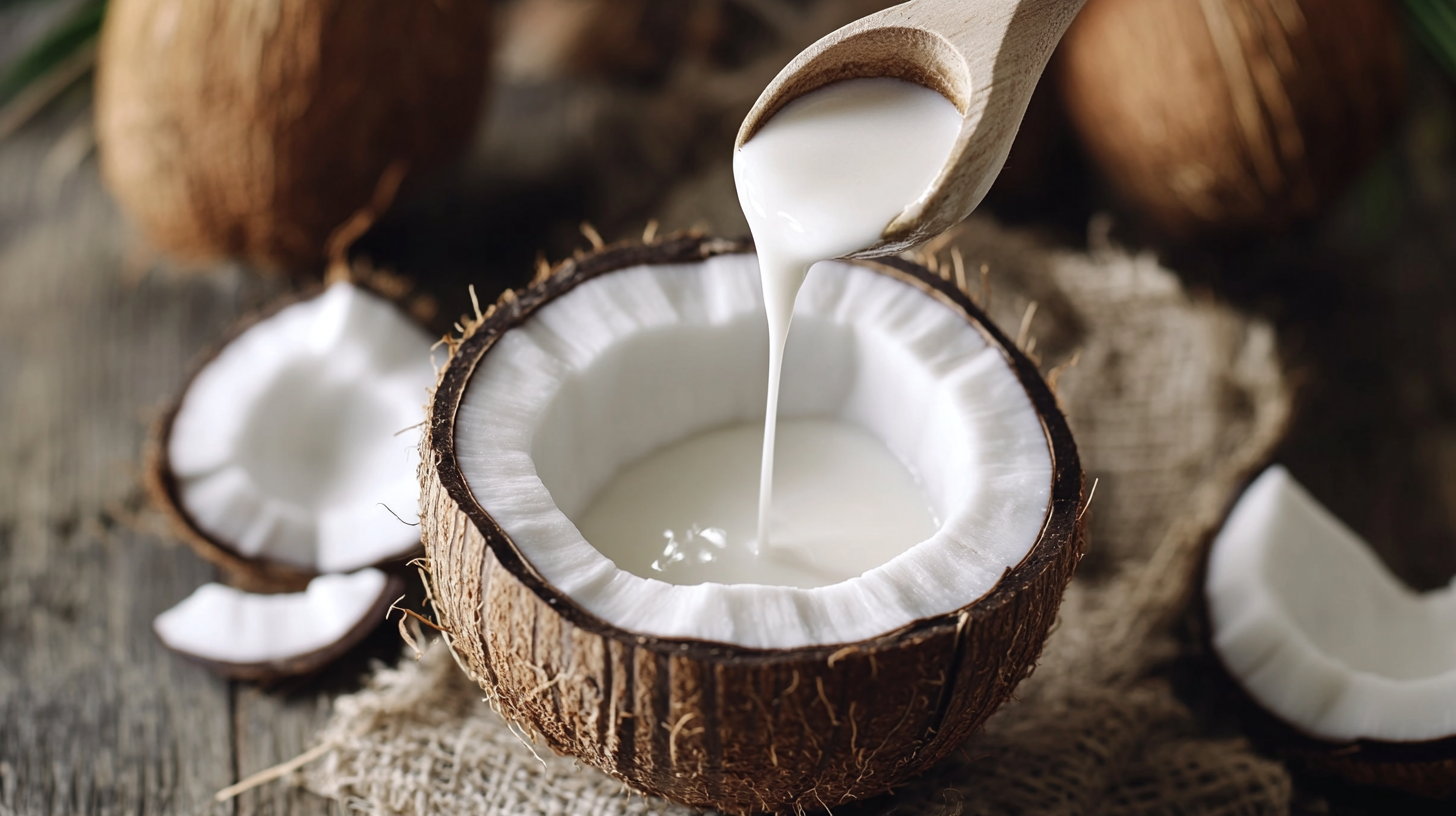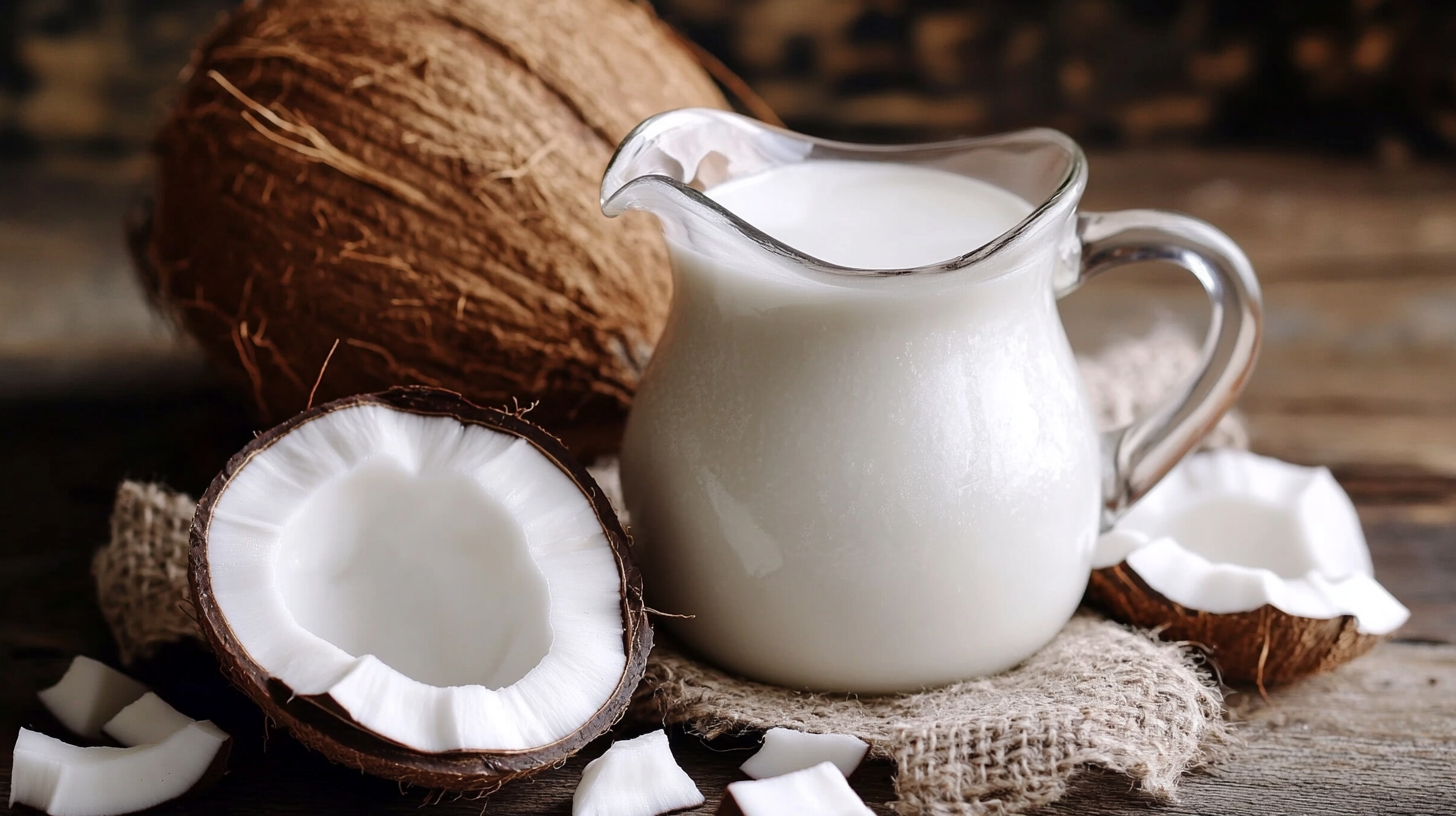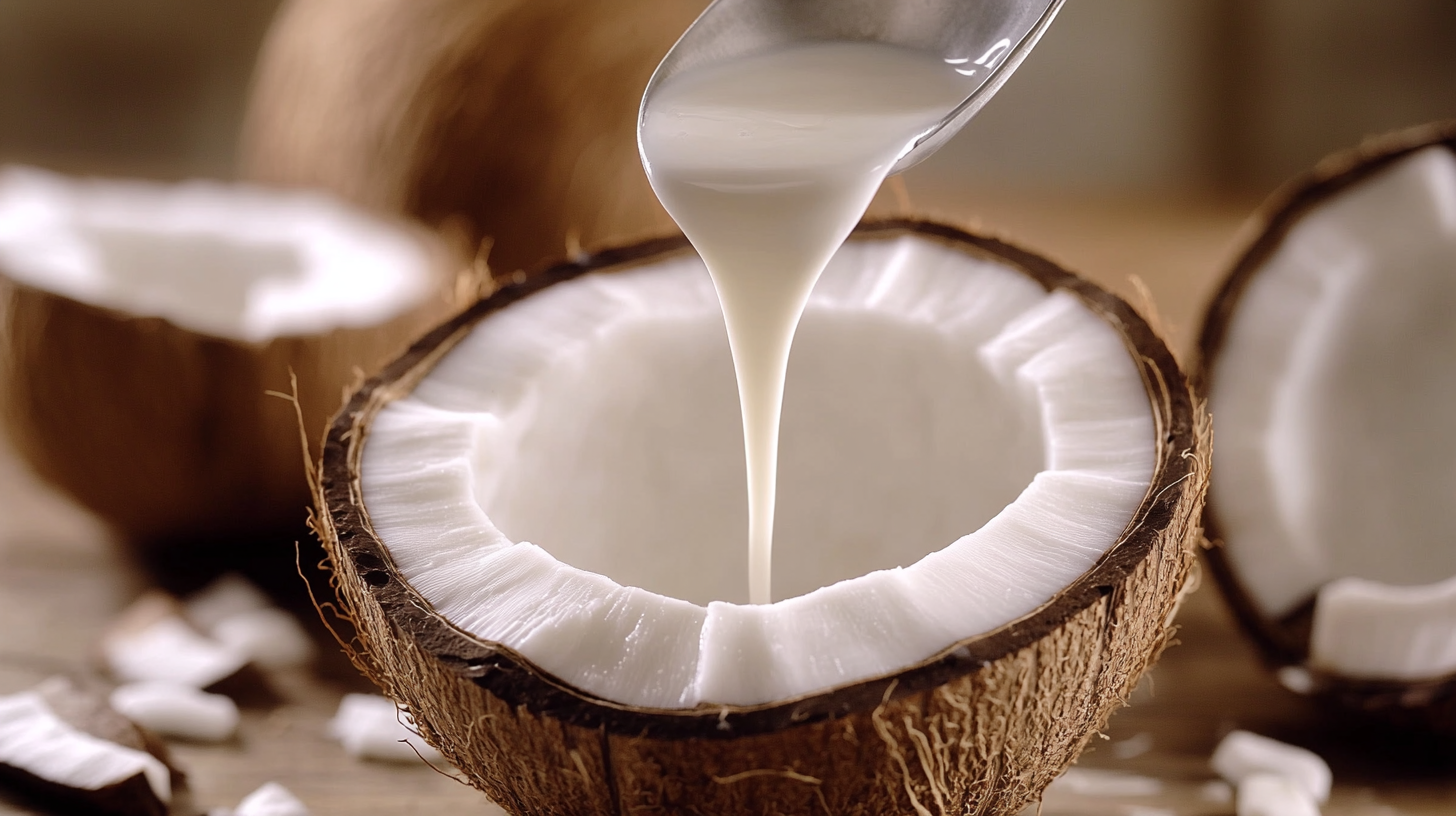
Leading Global Supplier of Best Coconut Creamer for Your Import Needs
 As the demand for plant-based alternatives continues to soar, the coconut creamer market is poised for significant growth in the coming years. According to a report by Grand View Research, the global coconut milk market size was valued at USD 1.17 billion in 2019, with projections suggesting that the coconut cream segment will witness a compound annual growth rate (CAGR) of over 13% through 2025. This trend reflects a shift in consumer preferences towards healthier, dairy-free options, driven by an increasing awareness of dietary choices and the benefits of coconut products. For importers seeking to capitalize on this booming sector, understanding the nuances of the coconut creamer industry will be essential. In this blog, we will delve into comprehensive market analysis, revealing key data points and tips that can help you navigate the landscape and establish a strong foothold as a leading global supplier of coconut creamer.
As the demand for plant-based alternatives continues to soar, the coconut creamer market is poised for significant growth in the coming years. According to a report by Grand View Research, the global coconut milk market size was valued at USD 1.17 billion in 2019, with projections suggesting that the coconut cream segment will witness a compound annual growth rate (CAGR) of over 13% through 2025. This trend reflects a shift in consumer preferences towards healthier, dairy-free options, driven by an increasing awareness of dietary choices and the benefits of coconut products. For importers seeking to capitalize on this booming sector, understanding the nuances of the coconut creamer industry will be essential. In this blog, we will delve into comprehensive market analysis, revealing key data points and tips that can help you navigate the landscape and establish a strong foothold as a leading global supplier of coconut creamer.
Top 5 Benefits of Choosing the Best Coconut Creamer for Your Business
When selecting the right coconut creamer for your business, understanding its benefits can significantly enhance your product offerings and customer satisfaction.
First and foremost, coconut creamer is naturally dairy-free, making it an excellent choice for the growing number of consumers adopting vegan or lactose-intolerant diets.
According to market analysis, the vegan cream market was valued at over $720 million in 2023 and is projected to reach nearly $2 billion by 2032.
This shift underscores the rising demand for plant-based alternatives, with coconut creamer being a star player.
Moreover, coconut creamer offers a rich and creamy texture that can elevate various beverages and culinary applications.
With a lower sugar content compared to traditional dairy creamers, it caters to health-conscious consumers who are more aware of their sugar intake.
Recent research in the food and beverage sector reveals that plant-based creamers, including coconut options, are becoming increasingly popular across coffee shops and restaurants, enhancing their appeal.
Additionally, the unique flavor profile of coconut creamer can distinguish your offerings in a competitive market, proving to be a versatile ingredient that appeals to both taste and health benefits.

7 Key Reasons to Import Coconut Creamer from a Leading Global Supplier
Coconut creamer has surged in popularity as a dairy-free alternative, making it an essential product for importers looking to cater to health-conscious consumers. Here are seven compelling reasons why you should import coconut creamer from a leading global supplier.
First, quality is paramount. A reputable supplier ensures that their coconut cream is sourced from the finest coconuts, delivering a rich and creamy texture that enhances any beverage. When selecting your supplier, look for certifications and quality guarantees that reflect their commitment to excellence.
Tip: Always request samples before making bulk purchases. This allows you to assess the product’s flavor and consistency firsthand.
Secondly, the demand for vegan and plant-based products continues to grow. By importing coconut creamer, you open doors to a broader customer base that seeks sustainable and health-focused options. Moreover, partnering with a leading supplier can provide access to innovative flavors and packaging that can set your offerings apart in a competitive market.
Tip: Stay updated on market trends and consumer preferences to tailor your product selection effectively.
4 Essential Factors to Consider When Sourcing Coconut Creamer
When sourcing coconut creamer for your import needs, it’s essential to consider several key factors that can influence the quality and success of your product. First and foremost, the sourcing region plays a significant role. Different countries produce coconuts with varying flavor profiles and creaminess levels, impacting the final product's taste and texture. Ensuring that your supplier's coconuts come from a reputable region known for quality production will enhance the overall appeal of your coconut creamer.
Another vital aspect to examine is the supplier's production process. Understanding how the creamer is extracted and processed can reveal a lot about its quality. Look for suppliers that prioritize natural methods and sustainable practices, as these not only lead to better-tasting products but also cater to the increasing consumer demand for environmentally friendly options. Additionally, certifications regarding organic or non-GMO status can significantly boost your product's marketability.
Lastly, don’t overlook the importance of tasting and testing samples prior to making bulk purchases. Quality control in terms of flavor consistency and shelf life is essential for maintaining your brand's reputation. By carefully considering these factors, you can successfully navigate the coconut creamer market, aligning your product with current trends, particularly as the demand for vegan and plant-based products continues to rise.

6 Unmatched Quality Features of Premium Coconut Creamer for Your Products
Coconut creamer has rapidly gained popularity among consumers seeking dairy alternatives, driven by health-conscious trends and increased demand for plant-based products. The premium coconut creamer market is projected to grow at a compound annual growth rate (CAGR) of 9.5% through 2027, according to recent industry reports. This surge is largely attributed to the rich, creamy texture and unique flavor that coconut creamers bring to a variety of culinary applications, from coffee to desserts.
Incorporating unmatched quality features, top-tier coconut creamer products stand out due to their high-fat content, natural sweetness, and versatility. These creamers are often fortified with vitamins and minerals, making them not only a delicious alternative but also a nutritious option for consumers. Additionally, the absence of preservatives and artificial ingredients enhances their appeal, ensuring that they meet the growing consumer demand for clean labels. As a testament to this trend, several new businesses, such as ice cream shops, are experimenting with coconut creamer in innovative frozen desserts, illustrating the ingredient's versatility and widespread acceptance in the food industry.
3 Innovative Ways to Incorporate Coconut Creamer in Your Offerings
Coconut creamer has quickly become a staple ingredient for health-conscious consumers and coffee lovers alike. One innovative way to incorporate coconut creamer into your offerings is by enhancing breakfast menus. From smoothies to oatmeal, adding coconut creamer provides a rich, creamy texture and a subtle tropical flavor that elevates traditional dishes. For instance, offering a coconut-infused smoothie bowl topped with fresh fruit and granola can attract customers looking for nutritious yet delicious options.
Another exciting avenue is integrating coconut creamer into baked goods. This versatile ingredient can be used in recipes for cakes, muffins, or pancakes, providing moisture and flavor without dairy. Imagine serving coconut cream-filled pastries, or even creating a signature blend by substituting traditional milk with coconut creamer in your secret recipes. This not only caters to vegan and lactose-intolerant guests but also introduces a unique twist that can differentiate your offerings.
Lastly, consider the potential of creating specialty beverages. Coconut creamer can be an ideal base for unique coffee drinks, smoothies, or even cocktails. Offering a coconut latte or a tropical iced coffee brings a refreshing and trendy element to your beverage menu. By embracing these innovative uses of coconut creamer, you’ll not only meet current consumer demands but also enhance the overall flavor profile of your offerings, making them more enticing to a diverse clientele.
Leading Global Supplier of Best Coconut Creamer for Your Import Needs - 3 Innovative Ways to Incorporate Coconut Creamer in Your Offerings
| Use Case | Description | Benefits | Target Market |
|---|---|---|---|
| Coffee Enhancer | Add coconut creamer to coffee for a rich, creamy texture and tropical flavor. | Enhances taste and texture, attracts health-conscious consumers. | Coffee shops, home baristas |
| Dairy Alternative | Substitute traditional dairy in recipes for a dairy-free option. | Appeals to vegan and lactose-intolerant consumers. | Restaurants, home cooks |
| Smoothie Base | Use coconut creamer as a base in smoothies for creaminess and flavor. | Rich flavor and texture boost, great for health-focused brands. | Health cafes, fitness enthusiasts |
